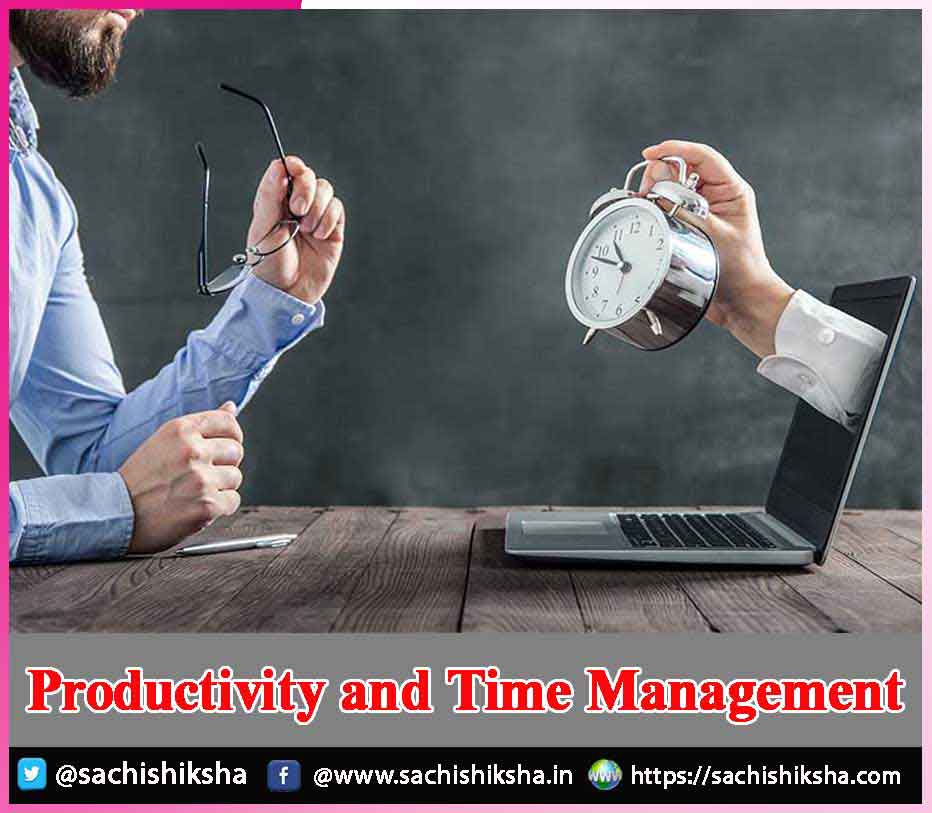Productivity and Time Management
Introduction: Time is a precious thing in the fast-paced world of today. Organizing and maximizing your time successfully can have a huge impact on your professional and personal lives. Time efficiency and effective time management are about making intelligent decisions that concentrate your attempts on those most essential tasks and duties, not merely getting more done in less time. This essay delves into the concepts of time management and provides practical advice for mastering the art of time management.
Table of Contents
Time Management Strategy:

Strategies to Enhance One’s Time Management Capabilities:
Plenty of individuals are unsure how to effectively organize their time.
Time Management Techniques
Below are some useful tactics discussed here have been shown to help individuals handle their time more successfully and feel better in the process and in productivity
The Pomodoro Method
This time management technique, created in the 1980s by author Francesco Cirillo, promotes users to select meaningful activities and then set an alarm (typically 25 minutes) to devote time to finishing these projects without distractions or pauses. This approach urges people to make the most of their time and emphasizes how modern-day diversions like as phones, social networking sites, and our 24/7 society deplete our time. We can do activities quickly and effectively without these outside influences.
Consume That Frog
Brian Tracy, an inspirational speaker, invented this strategy after being inspired by the renowned Mark Twain remark, “Consume a live frog right away in the morning, and no bad will impact you throughout the remainder of the day.” The frog signifies the most challenging job of the day – the one that you are probably inclined going to put off, but while doing so, you are going to hinder other aspects of your responsibilities as well.
The 80/20 Principle
The Pareto Principle additionally referred to as the 80/20 rule, states that 20% of what you produce will end up resulting in 80% of your outcomes. As a result, by focusing on that 20% of operation, you can do the greatest number of things in the shortest period of time. The 80/20 rule applies to practically every aspect of daily existence, including eating habits, physical activity, employment, and education.
In the context of time management, this is a good method. You can examine how you presently devote your time, evaluate the findings, and then alter your lifestyle in order in order to maximize the results by focusing more on significant worth activities.
Making Time Management Practices to be more Productive:
Maintaining Consistency:
Create a daily schedules that includes time for work, physical activity, leisure, and rest. Stability fosters healthy behaviors and maximizes the amount of energy.
Evaluate and Reflect:
Evaluate how well you are working to achieve your objectives on an ongoing schedule. Consider what performed well and what did not. To keep on track, modify your approaches appropriately.
Constant Learning:
Maintain your knowledge of time management approaches and technologies. Attending classes, read books, or watch experts to improve your understanding and time management abilities.
Concentration Practice:
Being attentive allows you to stay present and totally involved in the work at hand. Mindfulness minimizes stress and improves focus, resulting in increased time productivity which helps in achieving the targets more efficiently.
Improved Decision-Making:
Good time management allows you to make more educated decisions regarding how to spend your time. You can prioritize projects based on their relevance and utmost importance which makes it easy to select where to focus your efforts for the most beneficial effect on your goals.
Decreased Stress:
Organizing your time well helps you minimize the last-minute rush and the stress that comes with deadlines being missed. You may keep a calmer, more focused mindset by preparing ahead and maintaining organized, allowing you to tackle your duties with assurance.
Conclusion:
Developing time productivity is a lifetime endeavour that involves dedication, disciplined behaviour, and constant development. You may make the best possible use of your time, accomplish your goals, and live a life that is more satisfying by grasping the concepts of time management and using successful tactics. Keep in mind that time is a scarce resource; utilize it carefully, and you may achieve amazing things.















































